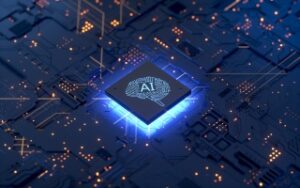 As stories about artificial intelligence’s (AI) remarkable advance appear with growing frequency in the news, it is a good time to discuss how these developments are affecting cybersecurity efforts. This is particularly relevant to businesses of all sizes as one recent study found that 86% of companies are using AI as a “mainstream” technology at their organization.
As stories about artificial intelligence’s (AI) remarkable advance appear with growing frequency in the news, it is a good time to discuss how these developments are affecting cybersecurity efforts. This is particularly relevant to businesses of all sizes as one recent study found that 86% of companies are using AI as a “mainstream” technology at their organization.
In this article, we will look at how AI’s development has had both a negative and positive impact on cybersecurity.
Cybersecurity Threats from AI
AI makes cybercriminals job easier
Just as AI has made regular jobs easier by completing and carrying out mundane tasks more efficiently, it has also done the same for the efforts of cybercriminals. In short, AI is making it easier to pose as trusted sources or break through current security safeguards. Hackers are now using AI tools to write more believable phishing emails with proper spelling and grammar. They are also using this technology to quickly incorporate data about the targeted organization including personal information about staff, executives, and customers.
 Cybercriminals are using AI technology to create rapid, realistic responses to any messages they receive from targeted users. They are also creating professional-looking websites and documents attached to their messages that are effective in fooling email recipients. More advanced hackers are using spam calls with deep faked voices that use recorded excerpts from real conversations to deceive call recipients.
Cybercriminals are using AI technology to create rapid, realistic responses to any messages they receive from targeted users. They are also creating professional-looking websites and documents attached to their messages that are effective in fooling email recipients. More advanced hackers are using spam calls with deep faked voices that use recorded excerpts from real conversations to deceive call recipients.
AI helps hackers improve their malware and compromise passwords
Cybercriminals are using AI to test and improve their malware to make it more resistant to AI-based security tools. Hackers learn from existing AI tools to develop more advanced attacks and attack traditional security systems or even AI-boosted systems.
Malicious actors are now also employing machine learning (ML) and AI to easily crack weak passwords of users. In some recent tests, currently available AI technology was able to compromise weak passwords within minutes.
Cybercriminals are exploiting weaknesses in AI and ML programs being used at the office
A major problem with AI and ML programs being used at companies is that they are still relatively new technologies and are proving to be vulnerable to manipulation by threat actors. For example, hackers are more frequently using model poisoning, which involves injecting malicious data into machine learning models. This type of attack causes the models to misclassify data and recommend wrong decisions.
AI algorithms and ML programs are designed to be objective and unbiased, but cybercriminals can tamper with and manipulate the data being processed to produce inaccurate recommendations. Companies that use these programs to help them make operational decisions will sometimes make poor decisions because of these attacks that negatively impact the bottom line.
Cybersecurity Protection from AI
Cybersecurity experts are using the power of AI to bolster organizations’ cyber defenses against the growing and ever-changing cybersecurity threat. IT and security experts must constantly defend against smarter and smarter bots, which are difficult to stop. Experts note that new types of attacks seem to emerge as soon as security experts block a different one.
Technology experts have described this ongoing battle as an arms race between cybercriminals using AI to plan and implement more effective attacks versus cybersecurity experts who are using the power of AI to improve cyber defenses.
AI helps companies detect threats
AI and machine learning enable organizations to recognize data patterns more easily, which helps security systems learn from past experiences by integrating behavioral analysis. For example, you can leverage AI models to develop profiles of every application within a company’s network by processing huge volumes of endpoint data quickly.
 These tools also enable companies to reduce incident response times and effectively comply with security best practices.
These tools also enable companies to reduce incident response times and effectively comply with security best practices.
AI improves vulnerability management
AI and machine learning allow companies to analyze baseline behavior of user accounts, servers, and endpoints more efficiently. These tools also enable organizations to identify anomalous behavior that could signal an upcoming attack.
Consult with a Cybersecurity Expert
An important recommendation for your small business is to take the time to consult and work with a trusted IT Support partner, such as Network Depot, to become more aware of the impact of AI and best prepare your organization against cybersecurity threats. Your IT partner will help you select and implement the right cybersecurity tools and solutions (traditional and AI-related), which will work best for your unique business.
By knowing and understanding the impact of AI on cybersecurity and with the assistance of your IT Support partner, your company will be confident that you are well protected. Secure with this knowledge, your organization will be able to maintain its focus on achieving your unique mission.